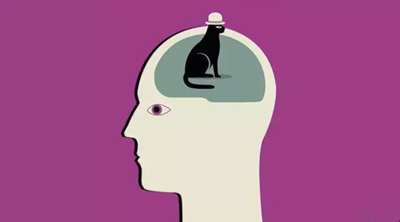Why would this be of any use? No one else had Merge. Whom did Prometheus talk to? Nobody, at least not using Merge. (Humans may already have been using cries and gestures, as many animals do.) But Merge-enabled, hierarchically structured language, according to Mr Chomsky, did not evolve for talking at all. Rather, it let Prometheus take simple concepts and combine them in sentence-like ways in his own head. The resulting complex thoughts gave him a survival advantage. If he then passed the mutant Merge gene on to several surviving children, who thrived and passed on the Merge gene to their children, Messrs Chomsky and Berwick believe that they must have then come to dominate the population of humans in Africa. Only later, as Merge came to work with the vocal and hearing organs, did human language emerge.
這能有什么用呢?別人又沒有“合并”。“普羅米修斯”與誰去談話?沒有人,至少不用“合并” 。(人類可能正如許多動物一般,一直使用叫喊還有手勢。)但是根據喬姆斯基,合并型的、縱向結構的語言并不是為會話而進化。確切地說,這種語言使得“普羅米修斯”采取簡單概念,并自己思考用句子的方式把它們結合起來。結果這些復雜思維給了他生存上的優勢。如果他當時將這一突變的“合并”基因遺傳給自己幾位幸存的孩子,而他們繼續繁衍并將“合并”基因傳遞給他們的小孩,喬姆斯基與貝里克認為想必他們那時已經主導了非洲人類。之后只有當“合并”與發音、聽力器官相結合,人類語言才得以出現。

Many scholars find this to be somewhere between insufficient, improbable and preposterous. The emergence of a single mutation that gives such a big advantage is derided by biologists as a “hopeful monster” theory; most evolution is gradual, operating on many genes, not one. Some ability like Merge may exist, but this does not explain why some words may merge and others don't, much less why the world's languages merge so differently. (Not a single non-English example appears in “Why Only Us”, nor a single foreign language in its index.)
許多學者認為依靠具有“合并”大優勢的單一突變體的這一語言進化理論是不充分、不恰當,而且荒謬的。同時這一觀點也被生物學家諷刺為“有前途的怪誕”理論;就生物學上認為大多數進化是漸進型,需要很多基因共同作用,而不是單獨一個。一些像“合并”的能力可能確實存在,但這不能解釋為何一些詞匯可能合并而其他不能,更不能解釋為何這個世界的語言合并地如此不同。(《為什么我們是唯一的》書中所舉的例子都是英語的,在索引里也沒有一門外語)
Mr Chomsky says those who disagree with his ever-more contentious ideas are either blind or hucksters. Critics refer to a “cult” of “acolytes” around a “Great Leader”, unwilling to challenge him or engage seriously with the work of non-Chomskyan scholars. (One critic has said “to be savaged by Chomsky is a badge of honour.”) Linguistics is now divided into a Chomskyan camp, a large number of critics and many more still for whom the founder of the modern discipline is simply irrelevant. He is unlikely to end up like Freud, a marginal figure in modern psychology whose lasting influence has been on the humanities. Mr Chomsky's career is more likely to end up like Einstein's—at least in the sense that his best and most influential work came early on.
喬姆斯基表示,那些不同意他曾更具爭議的想法的人都是瞎子或是跳梁小丑。批評家們把這些解釋為一群圍著“偉大領導者”打轉的信徒們對喬姆斯基的狂熱崇拜,他們不愿意挑戰他或從事非喬姆斯基學派的學術工作。(一位批評家曾說過“被喬姆斯基抨擊也榮幸之至”。)語言學如今被劃分成喬姆斯基陣營、大量的批評者以及還有更多是與現代語言體系建立者不相關人等。喬姆斯基本身是不可能像心理學家佛洛依德那樣結束他的學術生涯——在現代心理學被邊緣化,但卻能一直對人性產生持續的影響。喬姆斯基最有可能像愛因斯坦那樣—至少在狹義上,他在初期就開始推出最佳且最有影響力的學術著作。翻譯:鄧小雪 & 顏琪琳 校對:楊靄琳
譯文屬譯生譯世











